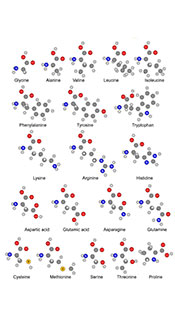
Eggs are a traditional food, and they are one of the most nutrient-rich food groups in the human diet.
However, there are some who suggest that eggs may not be a healthy choice.
Primarily, most of these concerns involve their cholesterol and saturated fat content.
This article takes a look at whether eggs are a healthy dietary choice.
What Are Eggs?
In the culinary context, eggs are a traditional food eaten by humans and many other animals.
Females from several different species can lay eggs, such as birds, fish (roe/caviar) and reptiles.
However, for this article, we will focus on chicken eggs – the most common variety.
Eggs consist of four main parts;
- Eggshell: Primarily calcium carbonate and protein form the hard outer shell of eggs.
- Membrane: this is the clear film-like lining that you can find inside the shell. It mainly consists of collagen.
- Albumen: more commonly known as ‘egg white,’ albumen is approximately 88% water and 11% protein (1).
- Yolk: The center of the egg is called the yolk, and depending on the chicken’s diet, it can vary between a pale yellow and dark orange color. This pigment comes from antioxidant compounds such as lutein. Egg yolks are a mixture of fat and protein.
There are also many different egg varieties, and their nutritional properties can vary depending on the animal they came from.
Nutrition Facts
Below you can find the full nutritional values for eggs including their calorie, macronutrient and micronutrient profile.
The nutrition profile is per 1 large egg (2).
Calories and Macronutrients
| Nutrient | Amount (kcal / grams) |
| Calories | 71.5 kcal |
| Carbohydrate | 0.4 g |
| Fiber | 0.4 g |
| Sugar | – |
| Fat | 5.0 g |
| Saturated Fat | 1.5 g |
| Monounsaturated Fat | 1.9 g |
| Polyunsaturated Fat | 0.7 g |
| Omega-3 Fatty Acids | 37.0 mg |
| Omega-6 Fatty Acids | 574 mg |
| Protein | 6.3 g |
There are 71.5 calories in one large egg, which makes eggs a relatively low-calorie food.
Eggs also contain minimal levels of carbohydrates, with one egg providing only 0.4 grams of carbs.
In contrast, eggs contain quite a large amount of dietary fat and this mainly comes from monounsaturated fat.
The omega-6 to the omega-3 ratio in typical eggs from caged or grain-fed chickens is quite high. However, pasture-raised (or supplemented) chickens contain much higher concentrations of omega-3.
Eggs are incredibly protein-dense, and one egg contains 6.3 grams of protein.
Micronutrients
As shown below, one large egg contains a significant amount of vitamins and minerals.
The table shows these micronutrients in order of concentration.
| Vitamin / Mineral | Amount (% RDA) |
| Selenium | 23 % |
| Vitamin B2 | 14 % |
| Vitamin B12 | 11 % |
| Phosphorus | 10 % |
| Vitamin B5 | 7 % |
| Folate | 6 % |
| Vitamin A (as retinol) | 5 % |
| Iron | 5 % |
| Vitamin B6 | 4 % |
| Zinc | 4 % |
| Vitamin D | 4 % |
| Calcium | 3 % |
| Copper | 3 % |
| Sodium | 3 % |
| Potassium | 2 % |
| Thiamin | 2 % |
| Vitamin E | 2 % |
| Magnesium | 2 % |
| Manganese | 1 % |
As we can see, eggs are a rich source of many nutrients but particularly selenium and B vitamins.
Eggs are also the most significant dietary source of choline, an essential vitamin-like nutrient.
It is worth noting that these nutritional values are based on one egg, such as a boiled or poached egg.
On the other hand, be aware that cooking methods like frying or scrambling with milk/cream will add extra calories and nutrients.
Dietary Cholesterol and Eggs

Firstly, eggs are a substantial source of dietary cholesterol.
Over the past decades, public health advice urged the public to restrict egg consumption to 300 mg per day because of this.
The official advice, according to Dietary Guidelines at least, was relaxed with the introduction of the 2015-2020 dietary guidelines onwards.
The official statement within these guidelines was as follows (3);
“Previously, the Dietary Guidelines for Americans recommended that cholesterol intake be limited to no more than 300 mg/day. The 2015 DGAC will not bring forward this recommendation because available evidence shows no appreciable relationship between consumption of dietary cholesterol and serum (blood) cholesterol. Cholesterol is not a nutrient of concern for overconsumption“.
However, the Dietary Guidelines do still recommend consuming low amounts of dietary cholesterol.
Furthermore, dietary cholesterol can slightly impact levels of blood cholesterol, and the topic requires some degree of nuance.
For more information: a guide to dietary cholesterol in eggs and its potential impacts.
Saturated Fat Content

Another common concern people have about eggs is their saturated fat content.
However, eggs contain relatively small amounts of saturated fat; one egg provides only 1.5 grams.
Here is a look at how the saturated fat in an egg compares to some other foods (4, 5, 6);
- 1.5 grams: 1 egg
- 1.9 grams: 1 tbsp olive oil
- 2.5 grams: 5 oz (140 g) salmon
- 4.3 grams: 1 avocado
Eggs Reduce Food Cravings and May Indirectly Promote Weight Loss

Eggs are extremely satiating and help us to feel full for a longer period of time.
One study showed that, after a breakfast of eggs, overweight participants felt full for longer compared to those eating a bagel breakfast.
Interestingly, in this study, the energy intake of the participants following the egg breakfast was lower than the bagel breakfast participants for 36 hours (7).
Eggs vs. Oatmeal
A similar study examined how a breakfast of two daily eggs compared to an oatmeal breakfast.
This particular study showed that hunger hormones like ghrelin were lower following the egg breakfast. Also, the participants ate less food throughout the day than those who had oatmeal for breakfast (8).
Why Do Eggs Increase Satiety Levels?
While we cannot state the exact reason for the satiating effects of eggs with full confidence, we can make probable guesses.
One reason why eggs enhance satiety is likely their protein density.
Protein is known to be the most satiating out of the three macronutrients, and it regulates hunger better than either carbohydrates or fat (9).
For example, imagine eating 1000 calories of pizza; perhaps that is about 3 or 4 slices, and it is easily done.
Conversely, 1000 calories of eggs would involve eating about 15 eggs in one sitting, which is not easy at all.
Since eggs are so filling and help to reduce food cravings, they can also have indirect weight loss benefits.
Eggs Contain Eye-Protective Antioxidants
Another benefit of eggs is their provision of some interesting carotenoid compounds known as lutein, zeaxanthin and meso-zeaxanthin.
Firstly, these compounds also exist in various green vegetables, but they have much greater bioavailability from eggs.
In other words, eggs are the most reliable way of increasing our serum levels of these compounds (10).
These compounds have an antioxidant function in the body, and research suggests they are particularly beneficial for our ocular health.
One theory for these benefits is that lutein and zeaxanthin filter blue light and help to reduce ocular inflammation.
Both of these actions may help to reduce (or slow) retinal degeneration (11, 12).
Various observational studies also show that higher dietary intake of these compounds lowers the risk for age-related macular degeneration (13).
Eggs May Have Benefits For Type 2 Diabetes
Eggs are a high-protein snack that does not adversely affect blood sugar levels.
Tight glycemic control is an essential consideration for people with diabetes, and protein can help with satiety.
A recent randomized, controlled trial of 34 adults shows that including two eggs per day in the diet of T2D patients leads to weight loss without an adverse effect on glycemic control or blood pressure (14).
Also, a systematic review of randomized nutrition intervention trials suggests that up to 12 eggs per week have no negative impact on CVD risk factors in T2D patients (20).

Eggs Provide Bioavailable and High-Quality Protein
The total amount of protein in food is not the only consideration.
Also, we have to consider the bioavailability of that protein – the amount we can absorb.
Markedly, the protein in eggs is more bioavailable than in any other food (15).
Furthermore, not all protein is a ‘complete’ protein.
A complete protein is a food that contains a sufficient amount of all nine essential amino acids. These amino acids include histidine, isoleucine, leucine, lysine, methionine, phenylalanine, threonine, tryptophan and valine.
Eggs are rich in each of these essential amino acids.
Amino Acid Profile
Not only are eggs an excellent source of the essential amino acids, but they also provide a decent amount of 18 different amino acids.
The table below shows the full amino acid profile of one egg (shaded areas represent the essential amino acids) (2);
| Tryptophan 83.5 mg | Threonine 278 mg | Isoleucine 336 mg | Leucine 544 mg |
| Lysine 457 mg | Methionine 190 mg | Cystine 136 mg | Phenylalanine 341 mg |
| Tyrosine 250 mg | Valine 430 mg | Arginine 411 mg | Histidine 155 mg |
| Alanine 368 mg | Aspartic acid 665 mg | Glutamic acid 838 mg | Glycine 216 mg |
| Proline 257 mg | Serine 486 mg |
Does the Type of Egg Matter?
We can find all kinds of eggs in-store.
Is there a difference between caged, barn, free-range, pastured and omega-3 eggs?
The simple answer is, to some extent, yes.
Eggs from chickens with access to pasture will have higher omega-3 content and higher amounts of vitamin A (16).
However, when we consider the overall nutrition profile, the difference between the egg varieties is not substantial for other nutrients.
If a higher consumption of omega-3 and vitamin A is a decisive factor, then opting for pastured eggs might be better.
Conversely, if this is not a concern, then whichever eggs are affordable is fine.
One other thing to note is the ethical side of this issue.
Personally, I prefer to buy eggs from chickens that can freely range, mainly for animal welfare reasons.






Great to know.
Yes right, and especially after the old “no more than 3 eggs per week” advice.
Being T2D I am not afraid of eating eggs hence forth
A well written review explaining logically the more recently discovered,facts or rethinking logically about the old known knowledge.
I appreciate the clarity in the presentation.
Thanks, Maurice!
Great information
Thanks, Mohammed!